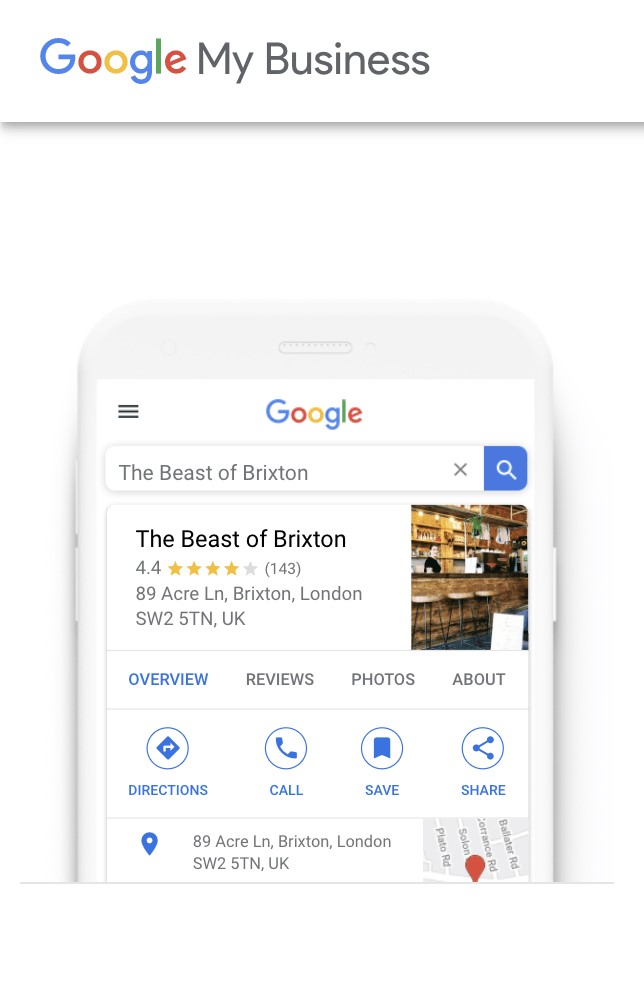Local SEO is a crucial aspect of online marketing for businesses of all sizes. By optimizing your website and online presence for local search, you can increase your visibility and attract more local traffic to your website. In this guide, we’ll cover what local SEO is, the benefits of local SEO, key local SEO strategies, and how to track and measure your results.
What is Local SEO?
Local SEO refers to the process of optimizing your website and online presence for local search. This includes optimizing your website for specific keywords and phrases related to your business and location, as well as building local citations and creating content for your local audience. Local SEO is different from traditional SEO in that it focuses on optimizing for local search results rather than general search results.

The Benefits of Local SEO
There are many benefits to implementing local SEO strategies for your business. Some of the key benefits include:
- Increased visibility: By optimizing your website and online presence for local search, you can increase your visibility and make it easier for local customers to find you online.
- Local traffic: Local SEO can help you attract more traffic to your website from people searching for businesses like yours in your local area.
- Higher search rankings: By implementing local SEO strategies, you can improve your search rankings and increase your chances of appearing at the top of local search results.
- Better customer experience: By providing relevant and useful information to your local audience, you can improve their experience and encourage them to visit your website and engage with your business.
Key Local SEO Strategies
There are many strategies that you can use to optimize your website and online presence for local search. Some of the key strategies include:
- Optimizing your website: This involves optimizing your website for specific keywords and phrases related to your business and location. This includes optimizing your website’s title tags, meta descriptions, and content for local keywords.
- Building local citations: Local citations are mentions of your business’s name, address, and phone number (NAP) on other websites. These citations help to improve your local search visibility and can also improve your search rankings.
- Creating content for your local audience: By creating content that is relevant and useful to your local audience, you can improve their experience and encourage them to engage with your business. This might include blog posts, videos, and social media posts that provide valuable information to your local audience.
Tracking and Measuring Results
To track and measure the success of your local SEO efforts, you can use tools such as Google Analytics and Google Search Console. These tools can provide valuable insights into your website’s traffic, search rankings, and other key metrics.
Google Analytics is a free web analytics service that allows you to track and measure your website’s traffic and performance. By integrating Google Analytics with your website, you can track metrics such as the number of visitors to your site, the pages they visit, and their location. You can also track the keywords and phrases that people use to find your website, as well as the sources of your website’s traffic (e.g., search engines, social media, referral sites).
Google Search Console is another useful tool for tracking and measuring the success of your local SEO efforts. This free service provides valuable insights into your website’s search performance, including the keywords and phrases that people use to find your site and the pages on your site that appear in search results. You can also use Google Search Console to track your website’s search rankings, identify any errors or issues with your website, and submit your website’s sitemap to Google.
By regularly monitoring the metrics provided by these tools, you can identify areas for improvement and make adjustments to your local SEO strategy. This can help you improve your search rankings, increase your website’s traffic, and ultimately drive more business to your local business.
In summary, local SEO is a crucial aspect of online marketing for businesses of all sizes. By optimizing your website and online presence for local search, you can increase your visibility and attract more local traffic to your website. Key local SEO strategies include optimizing your website, building local citations, and creating content for your local audience. To track and measure the success of your local SEO efforts, you can use tools such as Google Analytics and Google Search Console.
We encourage all business owners to start implementing local SEO strategies for their businesses. By doing so, you can improve your search rankings, increase your website’s traffic, and drive more business to your local business. Take the time to learn more about local SEO and start implementing these strategies today to see the benefits for your business.



